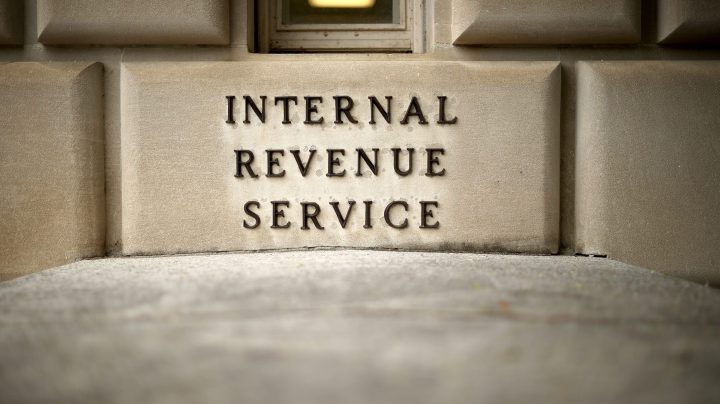
IRS is struggling to reach millions of Americans who need their stimulus checks
IRS is struggling to reach millions of Americans who need their stimulus checks

The $2 trillion Coronavirus Aid, Relief, and Economic Security (CARES) Act provided economic impact checks to millions of Americans. Most people have already received their payments via direct deposit or mail, depending on their tax returns.
However, as many as 12 million Americans — many of which are low-income individuals who either don’t file tax returns or don’t receive federal government benefits — have yet to receive a stimulus check.
“Marketplace” host Kai Ryssdal spoke to Lydia DePillis, an economic policy reporter for ProPublica, about the difficulty of reaching these people. The following is an edited transcript of their conversation.
Kai Ryssdal: Who are these people — a lot of them who have not gotten a stimulus check to which they were entitled?
Lydia DePillis: Well, there are a few buckets of different people. And to be clear, the IRS hasn’t told us precisely who they are. What they have told us is that, back in September, there were 9 million people, who they think we’re probably eligible for the stimulus checks, but had not needed to file taxes in the last couple of years. So, in order to claim them, [they] would have to file in their online portal. The other bucket of folks is people who the Treasury has said are not eligible for the stimulus checks, but courts have disagreed.
Ryssdal: Do me a favor and do a little compare and contrast here between this recession and the last time this was done, which was 2008.
DePillis: Yeah, so in a lot of ways, it was very similar. Congress said, please send money to almost everyone. And in 2008, the checks were about half as big. They were targeted at the same income bracket. So folks who make below $75,000 and twice that if they are a couple. But there was a few other differences. One, in 2008, you could have your stimulus check withheld for previous tax debts. This time, Congress didn’t require that. So, other than child support payments, the whole check should go to you. But this time, Treasury decided to carve out a few groups that Congress didn’t tell it to. So that would be the other primary difference.
Ryssdal: How much of the failure to communicate here as it were with people who are entitled to these checks or ought to have them is actually a question of IRS marketing, right? And, people understanding and coming to learn that they are eligible for these benefit checks?
DePillis: Right. So the IRS told me in the course of producing this story that they don’t have an independent marketing budget, unlike some other federal agencies, this is something they had to do entirely in-house. So while they did try to reach out through partners and do some kind of Facebook advertising, they weren’t like putting billboards up or doing anything on the order of what you would need to reach folks who were totally outside the financial system. And those are the folks who, of course, need this money most.
Ryssdal: Right. Outside the financial system, also, not as attuned to the news, as a lot of people in this economy are. I mean, you know, there’s a wealth of news, but not all of it gets to people who need it.
DePillis: Right. And one constituency they really tried to reach was homeless people for whom $1,200 would be completely transformative. And not only do those people usually not have smartphones, some of them do. And even if you did have a smartphone, the portal that you need to apply for doesn’t work on a smartphone, unfortunately. And [for] those people, the usual place they would go to gain information and access the internet, like libraries, were closed down during the pandemic. So, it was even harder to reach people than it would have been in other normal circumstances.
Ryssdal: Alright, so let’s do a little solutions journalism here. If you know someone, or if you are someone who believes they should have had this check but hasn’t gotten one, where do you go? What do you do? Who do you talk to?
DePillis: Right. So, you can still apply, and you have until Nov. 21, to apply through their online portal, which you can access pretty easily through IRS.gov. You can call their hotlines, which hopefully should be less busy as more and more people get themselves taken care of. But you deserve the money, and the IRS wants to give it to you.
There’s a lot happening in the world. Through it all, Marketplace is here for you.
You rely on Marketplace to break down the world’s events and tell you how it affects you in a fact-based, approachable way. We rely on your financial support to keep making that possible.
Your donation today powers the independent journalism that you rely on. For just $5/month, you can help sustain Marketplace so we can keep reporting on the things that matter to you.












